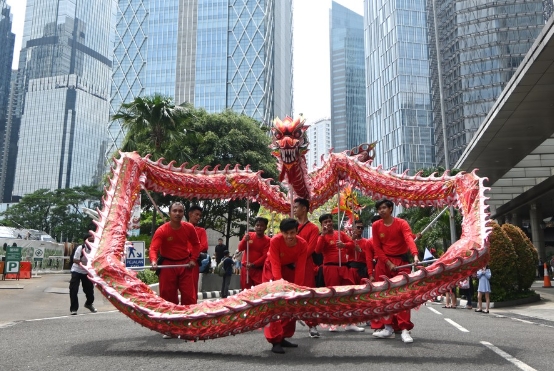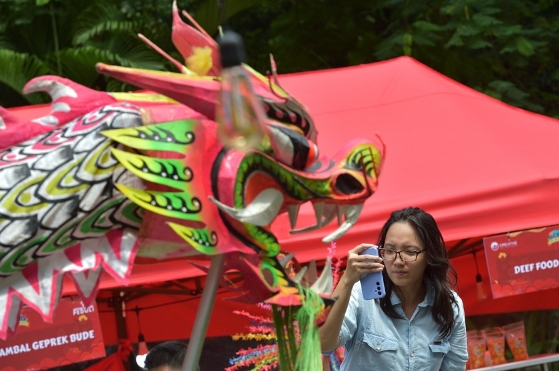Lantern Festival celebrated across Indonesia

Dragon dance performers pose during a parade in celebration of the Lantern Festival in Jakarta, Indonesia on Feb. 24, 2024. (Xinhua/Veri Sanovri)
The Chinese New Year is far from over in the Indonesian capital Jakarta, where people of Chinese descent flocked to Chinese temples, locally known as klenteng, to celebrate Cap Go Meh, the first full moon of the new lunar year, or Lantern Festival.
The event is observed 15 days after the onset of the Chinese New Year. For locals, the word cap go meh means the 15th night.
Windy Tan with her family on Saturday morning visited Kim Tek Le temple in Glodok, a famous Chinatown in Jakarta, sending prayers for peace and prosperity throughout the Year of Dragon. They live nearby Glodok and the family has a tradition to begin the celebration by visiting the temple.
"For us, we prayed as we hoped we'd pass through life's hardest moments this year," she told Xinhua. "After prayers, we go back home and continue the celebration with delicious lontong cap go meh for lunch," the 25-year-old said smilingly, referring to the popular traditional dish for the cap go meh celebration in Indonesia.
Lontong cap go meh is rice cake in banana leaves served with chicken, boiled eggs and vegetables in coconut-milk soup, and prawn crackers and chili paste.
Tan, who studied arts in China for about one year, has some knowledge about the celebration of the Lantern Festival and other festivals in the country.

A woman takes photos of dragon dance during a parade in celebration of the Lantern Festival in Jakarta, Indonesia on Feb. 24, 2024. (Xinhua/Veri Sanovri)
"We were born in Indonesia so we weren't really exposed to a lot of the things about Chinese culture when we were younger. It was a great opportunity to visit Beijing. I could also learn more about my identity," she said.
In Singkawang, a city on the island of Kalimantan, the cap go meh celebration in the town consisted of a series of activities, including "opening the dragon's eyes," which aimed to instill the spirits of ancestors into 12 dragon replicas that then performed around the city with marching band members. The performances were expected to ward off evil spirits and call for peace in the lives of residents.
Spectators in the city center could also see a group of people in Dayak tribal attire, standing, dancing, or hopping on machete blades. The people are locally known as tatung, the Hakka Chinese word for people possessed by gods or the spirits of ancestors.
The group performed extraordinary skills by being stabbed in the mouth, cheeks, lips and ears with metal sticks without suffering pain or wounds. The performance was always highly anticipated by people from both on and off Kalimantan.
In some other major cities in the Southeast Asian country, the cap go meh celebrations are accompanied by performances of lion dances, locally known as barongsai, parades and culinary festivals.
Editor:伏娅敏
